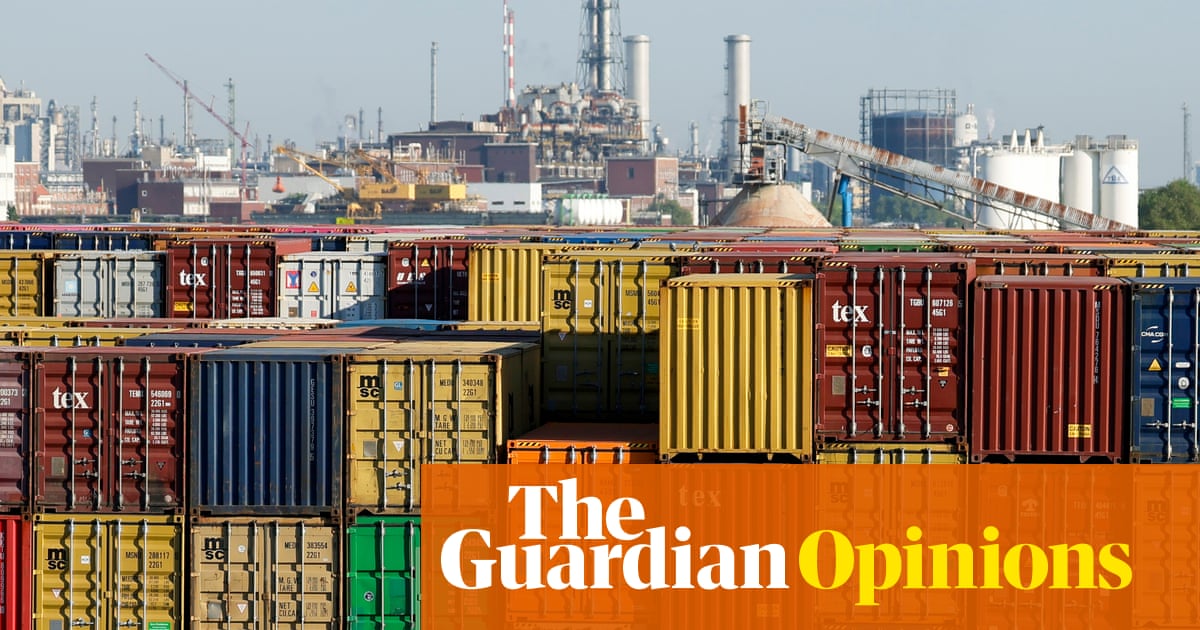The postwar global economic order, with the United States at its centre, has created more prosperity than any other period in human history. Yet asDonald Trumptakes a sledgehammer to that economic order, America’s democratic allies face a choice. We can accept the new cost of doing business with the US. We can follow the US down a path of mutually assured economic destruction with an ever-escalating trade war.Or we can find new avenues to keep free trade alive.
My proposition? I believe we need a new platform for economic cooperation between the world’s seven leading democracies. Call it the “Democratic 7”, or “D7”. The EU, the UK, Canada, Australia, New Zealand, Japan, and South Korea represent roughly25% of global GDPand account for about 35% of global trade volume. Together, these democracies can help to shield each other from the threats of economic nationalism and coercion – while also championing democracy, the rule of law, and market economics.
The building blocks for this are already in place. The D7 would draw on an existing web of bilateral and regional trade agreements and could serve as an incentive to sign new ones. Already, the Comprehensive and Progressive Agreement for Trans-Pacific Partnership, otherwise known as the CPTPP, includes Canada, Japan, Australia, New Zealandand the UK. The EU maintains comprehensive agreements with Japan, South Korea and Canada. An outstanding agreement between the EU and Australia could be put back on track, and the UK chancellor, Rachel Reeves,recently stressedan improvement in the UK-EU trading relationship as “imperative”.
The cornerstone of a D7 economic alliance would be the economic equivalent of Nato’s foundational principle, article 5, which holds that an attack on one is an attack on all. When economic powers threaten critical supply chains, engage in economic blackmail, or use access to their markets as leverage, they’re counting on isolating vulnerable countries. After Canada honoured its extradition treaty with the US anddetained a Huawei executive, for example, Canadian exports of pork and canola were banned from China. Australia’s trade with its Pacific neighbour was frozen after Canberra suggested an inquiry into the origins of the Covid pandemic, and South Korean companies have paid the price for decisions made in Seoul that displeased Beijing.
The D7’s article 5 would ensure that coercion against one D7 member triggers an immediate, proportional response from all. This would fundamentally alter the calculus of those who wield their economic might as a weapon. The D7’s mandate could also extend beyond defensive measures. It could create new frameworks for secure supply chains incritical sectors like semiconductors, rare earth minerals, medical supplies and green technologies. When one member faces shortages, others could provide priority access. Joint investment in production could ensure resilience against future disruptions of the kind we saw during the pandemic, and following Russia’s illegal invasion of Ukraine.
Together, D7 members could build a coherent, streamlined trading zone: reducing tariffs, removing bureaucratic hurdles, and establishing new standards based on shared values. Doing so would enhance our collective negotiating power when dealing with the US and China. When setting collective standards on emerging technologies like AI, for example, a D7’s collective economic weight would help prevent global rules being dictated by autocrats or tech oligarchs.
But no alliance is made stronger by becoming a closed club. While seven could serve as a starting point, the door should remain open to those who share these democratic values and are willing to support rules-based trade and prevent economic coercion, be they from Asia, Africa, Latin America, or elsewhere.
True, a D7 would be an undoubtedly complex undertaking. Any number of politicians and vested interests could raise concerns about agricultural policies or regulatory approaches. Europe can seldom find unanimity, and there is also the fact ofBrexit to contend with. But the global economic order that has benefited the world’s democracies is today facing an existential threat. If this order continues to fragment, democracies will be left at the whims of Trump and Xi Jinping. That’s why democracies need to stand together. Even while we grapple with this painful new reality, we must not forget: we still maintain the power to shape it.
Anders Fogh Rasmussen was Nato secretary general from 2009-2014 and prime minister of Denmark from 2001-2009
